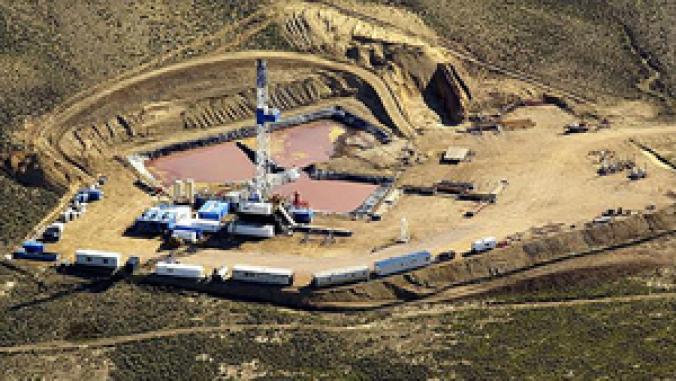It's All About the Money in Copenhagen
<p>On buses, in hallways, in long lines outside the Bella Center, participants are all talking about the explosion in financing and carbon trading that is needed to dramatically reduce the pollution causing climate change.</p>

Image licensed by Getty Images
It's all about the money these last days in the Danish capital and one key question is being asked: How on earth do you build and finance a robust and credible global carbon market? On buses, in hallways, in long lines outside the Bella Center, participants are all talking about the explosion in financing and carbon trading that is needed to dramatically reduce the pollution causing climate change.
The "financing" part is easy to understand: We need more spending on carbon-reducing activities, a lot more spending. Significantly more public and private financing is needed to deploy energy-saving, low-carbon technologies on the global scale needed. And 85 to 90 percent of that financing will need to be from private sources such as investment banks, public pension funds and other global investors who control many trillions of dollars.
Unfortunately, many of the negotiators here do not want to acknowledge this. "Private capital is practically unmentioned ... in the conversations here," said Timothy Wirth, former U.S. Senator and president of the UN Foundation. "This problem is not going to get solved with public financing alone."
And what about the challenge of "building" a credible global carbon market that will attract significant public and private investment? The details are overwhelming. For example, how do you ensure efficient, cost-effective carbon trading between Europe and the U.S.? The issue is timely as U.S. lawmakers consider a cap-and-trade program for the United States. Europe, of course, instituted its own cap-and-trade program in 2005 that builds off mandatory EU-wide carbon limits up through 2020. While it's all about the money, it may come down to a word you don't hear too often: Linkage.
How can you link emerging carbon markets around the world so they all work in concert together? A panel of U.S. and European carbon market experts, convened by Duke's Nicholas Institute and the German Marshall Fund, tackled the dicey topic yesterday and here are a few key takeaways U.S. policymakers should consider:
Compatability: The cap-and-trade program that the U.S. adopts does not have to be identical to Europe's, but it should be compatible so that strong linkages and trading can take place between the two systems. "The more players in the market, the stronger the market and the more you'll be able to drive down costs," said Jos Delbeke, the European Commission's deputy director-general for the environment.
Tough Regulation: A vigilant regulator with adequate oversight authority and resources to monitor this huge commodities trading exchange is critical. Right now there's a sensible push to give that authority to the Commodities Futures Trading Commission. "This commodities market, overnight, could be the largest we've ever seen," said Patrick Woodcock, a top aide to U.S. Senator Olympia Snowe, who is pushing the CFTC proposal.
Price Interference: Setting arbitrary price limits on the carbon price -- an idea being considered in Congress -- would be a mistake. "Setting price caps and prices floors would be very problematic (for the carbon trading market)," Delbeke said. "Such interferences in the market must be minimized as much as possible."
Quality Information: Accurate, real-time information on emissions from regulated sources and trading activity taking place is a must for building a carbon market investors can believe in. The EPA's new National Carbon Registry is an important foundation in this regard.
Environmental Results: The cap-and-trade program must deliver on its pollution-reducing promise. "The American public will not accept a system seen as unfairly compensating participants and not achieving its environmental goals," Woodcock said. Linking is not easy. Ever try to get 193 people -- let alone countries -- to do anything together? But if we are to finance developed and developing countries to adapt to and transition to a green economy, the only way to get it done is with money generated from a worldwide market-based carbon trading program.
Mindy S. Lubber is president of Ceres, a coalition of investors, environmental groups and other public interest organizations working with companies to address sustainability challenges such as global climate change.
This originally appeared at Politico.
Click here for full coverage of COP15 from the GreenBiz.com and ClimateBiz.com teams, including posts from Copenhagen by Executive Editor Joel Makower and Senior Contributor Marc Gunther, and from dozens of guest contributors from the business world.
Image licensed by Getty Images





